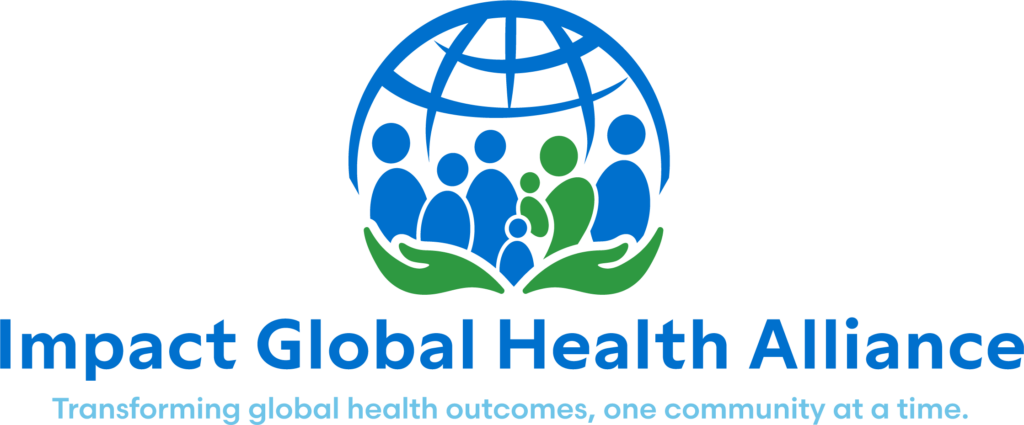August 17 is National Nonprofit Day (NND), a day to recognize the goals and positive impacts nonprofits have on communities and the world. Somewhere, A trained midwife delivers a baby in the dark, without electricity in an underserved community. At the same time, a $5 donation provides life-saving medical care for a mother and her family. A college student becomes an ally and guiding light to a forgotten community member impacted by COVID-19. National Nonprofit Day reminds us that each of these scenarios is possible because of the work performed by capable men, women and organizations. I know this because it’s the work my team at Impact Global Health Alliance Global does every single day.
Impact Global Health Alliance’ mission has always been to bring Hope through Health. It’s a mission that has been tested over the last six months as we see the impacts the COVID-19 pandemic is having on our communities at home and those across the globe. And yet, in these challenging times, we see an even stronger need for the work nonprofits do every day to bring awareness, research, and aid to the people who need it most.
A recent article published in The Lancet Global Health reports that while COVID-19 will increase mortality due to the virus, it is also likely to increase mortality indirectly in low- and middle-income countries, as people, efforts, and medical supplies all shift to respond to the emergency. The Lancet estimates that a severe scenario over six months would result in 253,500 additional child deaths and 12,200 additional maternal deaths. Think about that for a minute. Can you even imagine. I struggle to reconcile the amount of suffering that is caused for our most vulnerable neighbors. This in addition to the 5.9 million moms and children that died last year simply due to lack of access to healthcare.
During these unprecedented times, the decks are stacked against those who already face barriers to necessary healthcare, in fact, the pandemic has exacerbated the issues of inequities and access to vital resources and education. This is not just a global issue; this is a community issue. One that exists within our own neighborhoods, cities and states. As it has always done in its nearly 40-year history, Impact Global Health Alliance is raising its hand to be an ally to the underserved – focusing on prevention, health education and community partners – across the globe and right here at home, in the Carolinas.
In answering the call to serve, Impact Global Health Alliance immediately turned to its proven, revolutionary and validated community-based approach, which is at the foundation of the work done in places where no one wants to be. The Community-Based, Impact-Oriented (CBIO) methodology focuses on building partnerships with communities to accurately and efficiently identify major health problems and ensure that services reach every individual in those communities.
This approach is exemplified through a phone campaign that Impact Global Health Alliance helped execute right as the pandemic started. For months now, our volunteers have been on the phones alongside staff of the Guatemalan Consulate in Raleigh, North Carolina, reaching out to more than 15,000 families across the Carolinas in need of extra support during this pandemic. Many of these families do not speak English. Our volunteers are providing evidence-based information about the virus, connecting them to vital resources, like food, and serving as an ally and friend to those who may not know what to do if they get sick. To date, more than 400 volunteers have donated their time and talents.
Globally, communities in developing countries are often the least prepared due to limited education and infrastructure. Adding a global pandemic exacerbates the challenges by creating fear, uncertainty and opportunity for misinformation. A key part of Impact Global Health Alliance efforts is comprehensive systematic health activities. Building systems and networks so that no matter the health issue, the community is prepared and connected. Our partners have community health workers at our project sites in Guatemala and Kenya who are making sure that all families have the supplies and education they need to get serious about preventative hand washing and social distancing. These same healthcare workers are providing action steps that at-risk families can take to protect themselves should a family member develop COVID symptoms.
Our team has modified our education and outreach strategies to consist of home visits used to educate entire families about COVID prevention. Efforts to stay ahead of the fast-moving situation are problematic for these communities, which already struggle with under resourced health care systems. It’s something Impact Global Health Alliance learned firsthand through our work in Liberia during the 2014 Ebola outbreak there: prevention is the most important line of defense in keeping a bad situation from getting worse.
It’s important to remember that as the world responds to COVID-19 and the devastating impacts it has on so many, life still goes on – mothers are still giving birth, children continue to need vaccines – our work does not stop. Since 1983, during the global pandemic, and for years to come, we will continue to work tirelessly to reach forgotten communities around the world and right here in the US. In remote places where access to vital health care and resources are scarce, and no other organization is present; in urban settings where communities have been historically marginalized and face structural violence, Impact Global Health Alliance Global will be there.
On August 17, I encourage you to connect with a nonprofit in your area or beyond and learn about the ways you can take action and make a difference. Let’s celebrate the many nonprofit organizations and those devoted to them that make a positive impact in our backyard and across the world.




